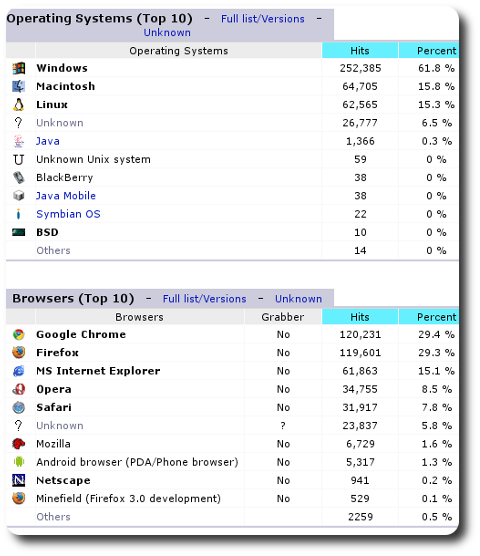

SERVERS that run GNU/Linux are typically using Red Hat's operating system and its clones [1]. My Web sites, of which there are about twelve, all run Red Hat (shared hosting) and Techrights (dedicated) runs CentOS. At work we mostly use Debian, sometimes Ubuntu too.
schestowitz.com, with GNU/Linux also accounting for higher share (see image above, based on non-bot requests from August 1st to August 22nd). Interestingly enough, reveals a new article [2], Google's ChromeOS is now being used to target the server with GNU/Linux. Could this be the beginning of a new trend? Is Google going to directly challenge Red Hat some time down the road?
Red Hat has dominated in providing “corporate production Linux” because it not only understands Linux, it understands corporate, and it understands production.
What does it mean to understand corporate?
They provide certification training and tests – RHCSA/RHCE/RHCA – and they’re not just guessing when they say that if you learn the material and pass those tests, you’re qualified to work in a particular capacity with RHEL.
Wired posted an article yesterday profiling the creators of CoreOS, a minimal Linux server OS built from the combination of Docker and Google's ChromeOS. I have been complaining for a long time that server installs were too bloated, and even though the minimal installs have taken care of much of that, the CoreOS project looks like they strip it down even more. Alex Polvi and his team are building a new, open way to build a datacenter that should have other commercial datacenter vendors worried.
Today in Open Source: Is Korora 19 a better Fedora? Plus: Juicy facts about Debian Linux, and Football Manager 2014 comes to Linux!